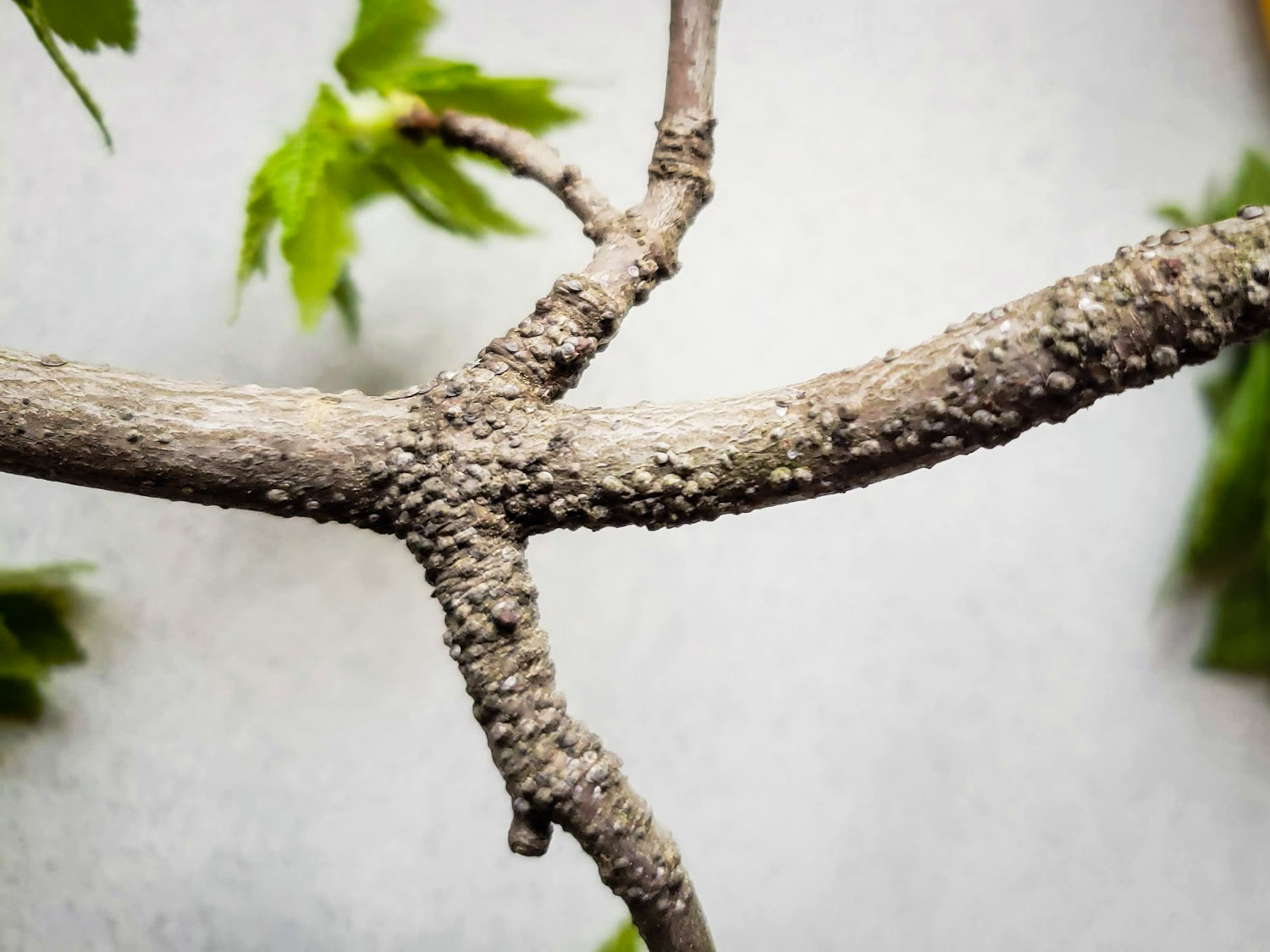
See all posts by this author
Scale insects can be quite damaging to maple trees. Maple scales, such as the oystershell scale and the Lecanium scale, feed on the sap of the tree, causing reduced vigor, yellowing leaves, and branch dieback. We see a lot of gloomy scale when dealing with maples in the Charlotte area as well.
Of course, prevention and treatment for maple scale is included in a Plant Health Care subscription from Arborscapes. (As are myriad other pests and diseases) If you would like to become a part of our Plant Health Care program, reach out to Arborscapes today! Your living landscape will be the envy of the entire neighborhood!
Treatment for scale on maple trees involves a multi-pronged approach:
Cultural and Environmental Controls:
- Tree Health: Ensure the maple tree is well-watered and properly fertilized. A stressed tree is more susceptible to pests.
- Physical Removal: For lighter infestations, scales can be physically removed by scrubbing or wiping them off branches with a soft brush or cloth.
Chemical Controls:
- Horticultural Oil: Dormant oils can be applied in late winter or early spring before the tree breaks dormancy to smother overwintering scales. Summer oils can be used during the growing season but ensure to check the label for temperature guidelines to avoid causing harm to the tree.
- Insecticidal Soaps: These are less toxic than many chemical options and work by suffocating the scales. They should be applied directly to the scales to be effective.
- Systemic Insecticides: Products containing imidacloprid or dinotefuran can be applied to the soil around the base of the tree. These are taken up by the roots and distributed throughout the tree, killing the scales as they feed. Ensure to follow label directions carefully and be mindful of the potential impact on beneficial insects.
- Contact Insecticides: Products containing carbaryl, malathion, or acephate can be effective against scales when sprayed directly onto them. However, they might also harm beneficial insects.
- Insect Growth Regulators (IGR) inhibit development in early stages. By disrupting the reproduction cycle by sterilizing adults they will not eliminate an entire infestation immediately, but remove their ability to thrive and multiply.
Monitoring & Timing:
- Regularly inspect your maple trees for signs of scale activity.
- If using insecticides, timing is crucial. The best time to treat scale is during the crawler stage, which is the mobile, juvenile form of the scale. This stage is typically present in late spring to early summer, though it can vary depending on the specific scale species and local conditions. Crawlers are much more susceptible to insecticides than the adult, armored scales.
Sanitation:
- Prune and remove heavily infested branches. Ensure to clean up and dispose of any pruned materials and fallen leaves, which might harbor scale insects or their eggs.
Managing scale on maple trees is most effective when combining cultural, biological, and chemical controls. Regular monitoring and early intervention can help prevent severe infestations and maintain the health of your maple trees.
And if all of this sounds like too much work, contact Arborscapes to subscribe to our Plant Health Care program, and we will take care of this, other pests, fertilization and health concerns for your living landscape!
See all posts by this author
